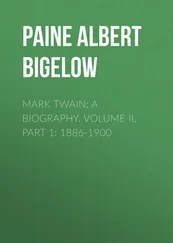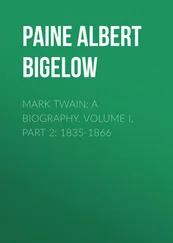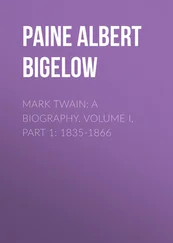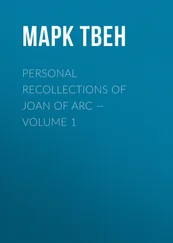Mark Twain - Personal Recollections of Joan of Arc — Volume 1
Здесь есть возможность читать онлайн «Mark Twain - Personal Recollections of Joan of Arc — Volume 1» весь текст электронной книги совершенно бесплатно (целиком полную версию без сокращений). В некоторых случаях можно слушать аудио, скачать через торрент в формате fb2 и присутствует краткое содержание. Год выпуска: 2004, Жанр: Историческая проза, на английском языке. Описание произведения, (предисловие) а так же отзывы посетителей доступны на портале библиотеки ЛибКат.
- Название:Personal Recollections of Joan of Arc — Volume 1
- Автор:
- Жанр:
- Год:2004
- ISBN:нет данных
- Рейтинг книги:5 / 5. Голосов: 1
-
Избранное:Добавить в избранное
- Отзывы:
-
Ваша оценка:
- 100
- 1
- 2
- 3
- 4
- 5
Personal Recollections of Joan of Arc — Volume 1: краткое содержание, описание и аннотация
Предлагаем к чтению аннотацию, описание, краткое содержание или предисловие (зависит от того, что написал сам автор книги «Personal Recollections of Joan of Arc — Volume 1»). Если вы не нашли необходимую информацию о книге — напишите в комментариях, мы постараемся отыскать её.
Personal Recollections of Joan of Arc — Volume 1 — читать онлайн бесплатно полную книгу (весь текст) целиком
Ниже представлен текст книги, разбитый по страницам. Система сохранения места последней прочитанной страницы, позволяет с удобством читать онлайн бесплатно книгу «Personal Recollections of Joan of Arc — Volume 1», без необходимости каждый раз заново искать на чём Вы остановились. Поставьте закладку, и сможете в любой момент перейти на страницу, на которой закончили чтение.
Интервал:
Закладка:
Yes, Joan of Arc was great always, great everywhere, but she was greatest in the Rouen trials.
There she rose above the limitations and infirmities of our human nature, and accomplished under blighting and unnerving and hopeless conditions all that her splendid equipment of moral and intellectual forces could have accomplished if they had been supplemented by the mighty helps of hope and cheer and light, the presence of friendly faces, and a fair and equal fight, with the great world looking on and wondering.
Chapter 18
Condemned Yet Unafraid
TOWARD THE END of the ten-day interval the University of Paris rendered its decision concerning the Twelve Articles. By this finding, Joan was guilty upon all the counts: she must renounce her errors and make satisfaction, or be abandoned to the secular arm for punishment.
The University's mind was probably already made up before the Articles were laid before it; yet it took it from the fifth to the eighteenth to produce its verdict. I think the delay may have been caused by temporary difficulties concerning two points:
1. As to who the fiends were who were represented in Joan's Voices; 2. As to whether her saints spoke French only.
You understand, the University decided emphatically that it was fiends who spoke in those Voices; it would need to prove that, and it did. It found out who those fiends were, and named them in the verdict: Belial, Satan, and Behemoth. This has always seemed a doubtful thing to me, and not entitled to much credit. I think so for this reason: if the University had actually known it was those three, it would for very consistency's sake have told how it knew it, and not stopped with the mere assertion, since it had made Joan explain how she knew they were not fiends. Does not that seem reasonable? To my mind the University's position was weak, and I will tell you why. It had claimed that Joan's angels were devils in disguise, and we all know that devils do disguise themselves as angels; up to that point the University's position was strong; but you see yourself that it eats its own argument when it turns around and pretends that it can tell who such apparitions are, while denying the like ability to a person with as good a head on her shoulders as the best one the University could produce.
The doctors of the University had to see those creatures in order to know; and if Joan was deceived, it is argument that they in their turn could also be deceived, for their insight and judgment were surely not clearer than hers.
As to the other point which I have thought may have proved a difficulty and cost the University delay, I will touch but a moment upon that, and pass on. The University decided that it was blasphemy for Joan to say that her saints spoke French and not English, and were on the French side in political sympathies. I think that the thing which troubled the doctors of theology was this: they had decided that the three Voices were Satan and two other devils; but they had also decided that these Voices were not on the French side—thereby tacitly asserting that they were on the English side; and if on the English side, then they must be angels and not devils. Otherwise, the situation was embarrassing. You see, the University being the wisest and deepest and most erudite body in the world, it would like to be logical if it could, for the sake of its reputation; therefore it would study and study, days and days, trying to find some good common-sense reason for proving the Voices to be devils in Article No. 1 and proving them to be angels in Article No. 10. However, they had to give it up. They found no way out; and so, to this day, the University's verdict remains just so—devils in No. 1, angels in No. 10; and no way to reconcile the discrepancy.
The envoys brought the verdict to Rouen, and with it a letter for Cauchon which was full of fervid praise. The University complimented him on his zeal in hunting down this woman "whose venom had infected the faithful of the whole West," and as recompense it as good as promised him "a crown of imperishable glory in heaven." Only that!—a crown in heaven; a promissory note and no indorser; always something away off yonder; not a word about the Archbishopric of Rouen, which was the thing Cauchon was destroying his soul for. A crown in heaven; it must have sounded like a sarcasm to him, after all his hard work. What should he do in heaven? he did not know anybody there.
On the nineteenth of May a court of fifty judges sat in the archiepiscopal palace to discuss Joan's fate. A few wanted her delivered over to the secular arm at once for punishment, but the rest insisted that she be once more "charitably admonished" first.
So the same court met in the castle on the twenty-third, and Joan was brought to the bar. Pierre Maurice, a canon of Rouen, made a speech to Joan in which he admonished her to save her life and her soul by renouncing her errors and surrendering to the Church. He finished with a stern threat: if she remained obstinate the damnation of her soul was certain, the destruction of her body probable. But Joan was immovable. She said:
"If I were under sentence, and saw the fire before me, and the executioner ready to light it—more, if I were in the fire itself, I would say none but the things which I have said in these trials; and I would abide by them till I died."
A deep silence followed now, which endured some moments. It lay upon me like a weight. I knew it for an omen. Then Cauchon, grave and solemn, turned to Pierre Maurice:
"Have you anything further to say?"
The priest bowed low, and said:
"Nothing, my lord."
"Prisoner at the bar, have you anything further to say?"
"Nothing."
"Then the debate is closed. To-morrow, sentence will be pronounced. Remove the prisoner."
She seemed to go from the place erect and noble. But I do not know; my sight was dim with tears.
To-morrow—twenty-fourth of May! Exactly a year since I saw her go speeding across the plain at the head of her troops, her silver helmet shining, her silvery cape fluttering in the wind, her white plumes flowing, her sword held aloft; saw her charge the Burgundian camp three times, and carry it; saw her wheel to the right and spur for the duke's reserves; saw her fling herself against it in the last assault she was ever to make. And now that fatal day was come again—and see what it was bringing!
Chapter 19
Our Last Hopes of Rescue Fail
JOAN HAD been adjudged guilty of heresy, sorcery, and all the other terrible crimes set forth in the Twelve Articles, and her life was in Cauchon's hands at last. He could send her to the stake at once. His work was finished now, you think? He was satisfied? Not at all. What would his Archbishopric be worth if the people should get the idea into their heads that this faction of interested priests, slaving under the English lash, had wrongly condemned and burned Joan of Arc, Deliverer of France? That would be to make of her a holy martyr. Then her spirit would rise from her body's ashes, a thousandfold reinforced, and sweep the English domination into the sea, and Cauchon along with it. No, the victory was not complete yet. Joan's guilt must be established by evidence which would satisfy the people. Where was that evidence to be found? There was only one person in the world who could furnish it—Joan of Arc herself. She must condemn herself, and in public—at least she must seem to do it.
But how was this to be managed? Weeks had been spent already in trying to get her to surrender—time wholly wasted; what was to persuade her now? Torture had been threatened, the fire had been threatened; what was left? Illness, deadly fatigue, and the sight of the fire, the presence of the fire! That was left.
Читать дальшеИнтервал:
Закладка:
Похожие книги на «Personal Recollections of Joan of Arc — Volume 1»
Представляем Вашему вниманию похожие книги на «Personal Recollections of Joan of Arc — Volume 1» списком для выбора. Мы отобрали схожую по названию и смыслу литературу в надежде предоставить читателям больше вариантов отыскать новые, интересные, ещё непрочитанные произведения.
Обсуждение, отзывы о книге «Personal Recollections of Joan of Arc — Volume 1» и просто собственные мнения читателей. Оставьте ваши комментарии, напишите, что Вы думаете о произведении, его смысле или главных героях. Укажите что конкретно понравилось, а что нет, и почему Вы так считаете.












